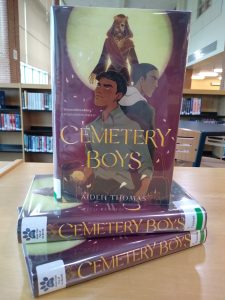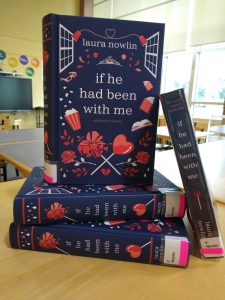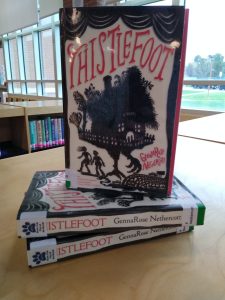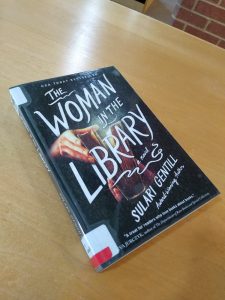
Cemetery Boys by Aiden Thomas
When his traditional Latinx family has problems accepting his gender, Yadriel becomes determined to prove himself a real brujo. Performing the ritual himself, he sets out to find the ghost of his murdered cousin and set it free. However, the ghost he summons is actually Julian Diaz, his school’s resident bad boy. Julian is not about to go quietly into death, determined to tie up some loose ends before he leaves. Left with no choice, Yadriel agrees to help Julian, so that they can both get what they want. But the longer Yadriel spends with Julian, the less he wants to let him leave.
I liked this book.
This book showed what transgenders face to reach acceptance, the first I really read that talked about it (‘Mad Honey’ by Jennifer Finney Boylan and Jodi Picoult- a book club pick two years ago- was more about the transition itself while this book reflected on the consequences of our society conformity on those that want to be recognize for who they really are). I liked how it was educational in a passive way. We never learn Yadriel’s deadname, which I like. The majority of people want to forget their past self and this encapsulates that thought.
I really like the relationship. While a bit fast, due to the situation the characters are in, it feels natural (and I also have a feeling that magic is also playing a role, but that is just a speculation). They are really cute together.
I did guess the villain right away. The author introduced one person that could be the antagonist and the main characters did search for other leads. So, to me, it was very obvious and not a twist that it was supposed to be.
I liked the magic aspect of the book. It connected to Latina cultures and traditions beautifully. That is another thing I enjoyed about the book. They don’t focus on one Latina culture but a collective of them that was nice to see.
I recommend this book and will be reading the sequel that comes out on September 11, 2025.

If He Had Been with Me by Laura Nowlin
Autumn is considered unconventional by most of society. But not by her best friend and neighbor, Finny. But with high school comes the drifting apart of childhood friends. So, when Finny and his girlfriend have an argument that leads to a crash in the pouring rain, Autumn looks back at the life that did and could have happened.
I was pleasantly surprised but how much I enjoyed this book. I didn’t expect for a romance book to get that dark, but I was all for it.
I think the main reason why I liked the book as much I did was the main character. She’s eccentric, but in a fashion that resonates with this generation. It gives depth to her character that is missing from the average ‘I’m-not-like-the-other-girls’ trope. She’s different, leading her to often be misunderstood by the populous, yet she has the same experiences as someone in high school goes through. She’s realistic in her pain and her thrills.
I also love the prose of the book. Autumn is a writer, and her narration of her story reflects that. There is a flow that reads easily like poetry. This is in part because the majority of the syntax consists of short sentences; thus, reading like freeform poetry. It also felt really quick to read due to the former and its short chapters- some being just a page long.
While I really like this book, I am not invested enough to read the sequel, ‘If Only I Had Told Her.’ This has more to do with the premise of the second book- one I don’t want to read- than figuring it wouldn’t be good. (There has to be a reason why this series is a BookToc sensation).

Thistlefoot by GennaRose Nethercott
The Yaga siblings–Bellatine and Isaac–have been estranged since childhood, separated both by resentment and by wide miles of American highway. But when they learn that they are to receive a mysterious inheritance, the siblings are reunited–only to discover that their endowment is a sentient house on chicken legs: Thistlefoot. It has arrived from the Yagas’ ancestral home in Russia–but not alone. A sinister figure known only as the Longshadow Man has tracked it to American shores, bearing with him violent secrets from the past: fiery memories that have hidden in Isaac and Bellatine’s blood for generations. As the Yaga siblings embark with Thistlefoot on a final cross-country tour of their family’s traveling theater show, the Longshadow Man follows in relentless pursuit, seeding destruction in his wake. Ultimately, time, magic, and legacy must collide–erupting in a powerful conflagration to determine who gets to remember the past and craft a new future.
There are a few books a person reads that changes their life. This is one of those books for me.
The whole message of the book is as long as someone remembers, tells the story, it will never be forgotten. Because if you don’t forget, it will ‘Never Again [Happen]’ as the Holocaust motto proclaims. This story tells of the Pogroms- an organized massacre of Jewish people in Russia or eastern Europe in the late 19th and early 20th centuries. This event is not as talked about as the Holocaust but is still a devastating event for the culture and people due to paranoia and hate that caused it.
The novel is based on Jewish folklore, primarily that of Baba Yaga and her chicken-legged house. The house gets a perspective, telling her (the house feels like a grandmother to me) story of her differing origins. Her idea of running brings new meaning to the theme. The house was one of my favorite characters in the book.
My other favorite character is the villain- the Longshadow man. He is the perfect foe to challenge the message of the story. He is up there with the Judge from ‘Blood Merdian’ as my favorite villain. He is menacing because we know not what he is until our characters figure him out. He is a challenge to beat, forcing our characters to actually change their ideology about themselves.
Each character has a past that influences their choices, impacts their views, and what they must overcome. It is a mix of their powers, which reflect the story beautifully, and actions beyond their control. Each character feels distinctly different from each other.
The prose is wonderful; mirroring the telling of folk tales and the fact that the author is a poet. I feel the love with each phrase, how meaningful this story is to her and her culture as emphasized by her dedication: ‘And for all our ancestors who waltzed,/ baked bread, love, fought, and survived, the impossible/ so that we could at last, here in this gentle sliver of time, meet’. Each phrase is unique and perfectly expresses the feelings and mood of the characters.
I love the relationships, subtle but expands the narrative exquisitely. The ending weaved all lines to a satisfying conclusion that is still open-ended enough that the reader can decide what exactly they believe happened.
The story has twists and turns, each I loved with passion. I love this book so much and can’t recommend it enough.

The Woman in the Library by Sulari Gentill
The ornate reading room at the Boston Public Library is quiet, until the tranquility is shattered by a woman’s terrified scream. While they wait for the all-clear that the threat is contained, four strangers, who’d happened to sit at the same table, pass the time in conversation and friendships are struck. Each has his or her own reasons for being in the reading room that morning—it just happens that one is a murderer.
While a good book that I had fun reading, the summary is vastly misleading.
The summary above relates to the main part of the book. However, at the end of each chapter there an email to the Australian ‘author’ writing this book from Leo, a beta reader living in the location that this ‘manuscript’. I have complicated feelings about these sections of the book. For the first half, the emails would bring me out of the experience of the actual story. Yet, for the second half, it was the part I was more interested in- more than the actual story. There is such an interesting plotline that Leo serves. Leo also gets to be a ‘fictional character’ in the ‘manuscript’. As his plot advances to where it ends, I find it fascinating what the ‘author’ chose to end the ‘character’ of Leo. There is also the fact that in these emails there are mentions of semi-current events such as Covid, Australian wildfires, and climate change. It adds a cool perspective of someone’s thoughts of importance.
The main portion of the story was good. They tricked me into thinking the murderer was someone else for the majority of the book due to a cleverly laid red herring. But I wish there was more focus on the murder and scream than of the romances that happen. The couples get together way too fast, which often happens in books. (It doesn’t help that there is little mention of time passage until chapters later when a chapter says it’s been weeks since events happens.) But what is not an usual occurrence is the clingy dependency that our main character exhibits as soon as she gets into this relationship. It feels forced and unnatural. She puts majority of her life on hold and putting herself in danger for a man she just started dating yet acts like her whole world revolves around him.
It was a decent book that I had fun with.
